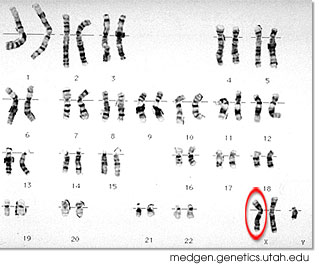KLINEFELTER SYNDROME.
Its hard to get your head around that a stunning HALF of adult men are unaware they have an extra X Chromosome.

What is Klinefelter Syndrome?
Klinefelter Syndrome is a genetic condition caused by an abnormality of the XY Chromosome. 80% of men with Klinefelter have one extra X chromosome (making an XXY Chromosome) and 20% have other varations such as a combination of XY and XXY (ie. two cell populations – called mosaicism).
How common is Klinefelter Syndrome?
Klinefelter Syndrome is a surprisingly common issue at a men’s health clinic, with around 1 in 500 men being affected. Around 60% of men with Klinefelter Syndrome are unaware they have it, partly because the features may be very minimal. Under diagnosis is an important issue.
What are the Symptoms of Klinefelter Syndrome?
There is a range of symptoms and features dependent on the genetic subtype. There are a wide range of physical features that may or may not occur. The condition is most commonly diagnosed in adult men with low testosterone.
Boys may present at puberty with:
- Small testes, lack of hair under the arms or pubic area or face
- Enlarged breast tissue
- Obesity
- Body image issues
- Mental health issues such as depression
Note that enlarged breast tissue (Gynaeomastia) is very commonat puberty & is only rarely caused by Klinefelter Syndrome. Most boys with Gynaeomastia at puberty may be reassured that this usually goes within 18 months. Statistically, around half of boys have a small degree of gynaecomastia at puberty and around 1 in 20 boys have palpable glandular tissue more than a 1 cm in diameter.
Younger children may have:
- Chronic Constipation
- Sleep apnoea
- Increased height and/or long legs or arms
- Psychological or Developmental issues
Adults men may present for the first time with:
- Fatigue
- Low Libido and/or erectile dysfunction
- Infertility
How is the diagnosis made?
There is of course is a genetic test for the condition. But you have to think of the diagnosis in the first place!
Adult men without the diagnosis should start by checking the size of their testicle and getting their testosterone checked. Be up front with your GP and explain that you are concerned you may have Klinefelter syndrome.
In the ideal world, every young man would have a quick physical examination by a doctor to check their testicle size. But will young men really queue up to see their GP to get their testicles examined? Will every GP know what they are looking for?
The diagnosis is confirmed with a blood test for chromosomal analysis (‘karyotyping’). The test will identify whether the Klinefelter Syndrome is typical XXY or another type such as mosacisim.
What are the treatments for Klinefelter Syndrome?
Treatments are tailored to individual symptoms or features.
Typically, Testosterone replacement therapy (TRT) will benefit men with the condition. TRT may improve a number of symptoms. Of particular note, TRT may be considered even when the testosterone level is normal and the marker for this would be a raised LH hormone level (the feedback hormone that may be abnormally high). I would refer new patients with Klinefelter Syndrome to an endocrinologist but can otherwise manage patients at the mens health clinic.
What are the treatment options for infertility?
It was recently thought that the treatment option for infertility (no sperm in the semen following a semen analysis) was IVF with donor sperm. However, it’s recently been found that sperm can be extracted from the testes in around half of men with Klinefelter Syndrome using a method called “testicular sperm extraction” (TESE). There is a drop-off in success of TESE with increasing age. Generally therefore a referral to a fertility specialist is sensible if the condition is diagnosed in Adolescence.
What other treatments might be helpful?
Some men with may wish to see a plastic surgeon where there are issues relating to breast (eg. mastectomy) or fatty tissue (eg. liposuction). There is no clear-cut link with increased genetic risks for offspring but a referral to a genetic service may be considered. Finally, it’s sensible to link in with a Klinefelter Syndrome Support Group.
What Checkups are suggested?
Regular tests will pick up any issues. Let’s run through a list of tests that are suggested from time to time:
- Thyroid Function Blood Test – An underactive thyroid is around 25 times more common
- Full Blood Count – Anaemia is three times more common in men with Klinefelter.
- Fasting Blood Glucose – Diabetes is around 4 times more common
- Cholesterol break-down
- Bone Density Scan – because of the increased risk of Osteoporosis.
Is there a Support group you would recommend?
Information for the Australian X and Y Support, which is ran by volunteers is:
https://axys.org.au email [email protected]
Any one wanting support or to join the private Facebook group can do via the contact above. You need to have Klinefelters or be closely related to someone who does.
REVIEWED/UDPATED:
CREATED:





Please Telephone us (not email) with any enquiries.